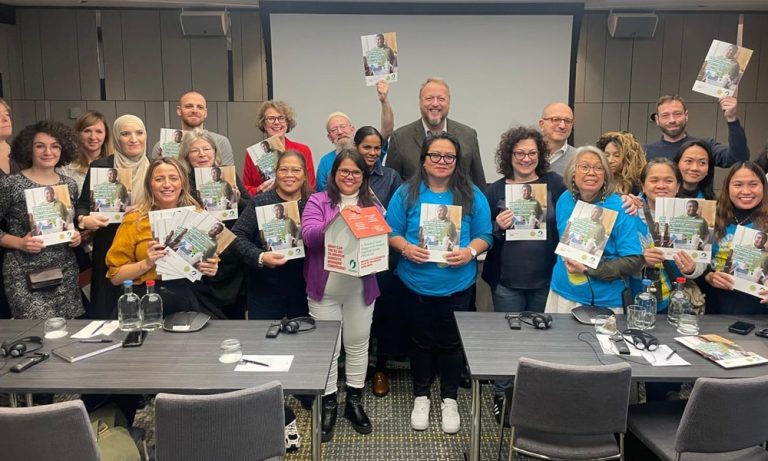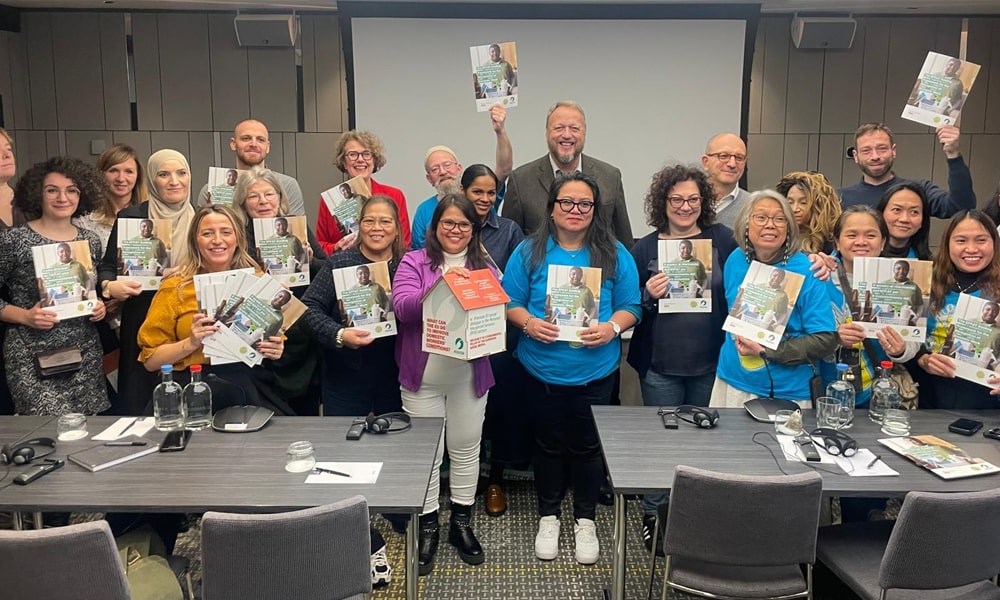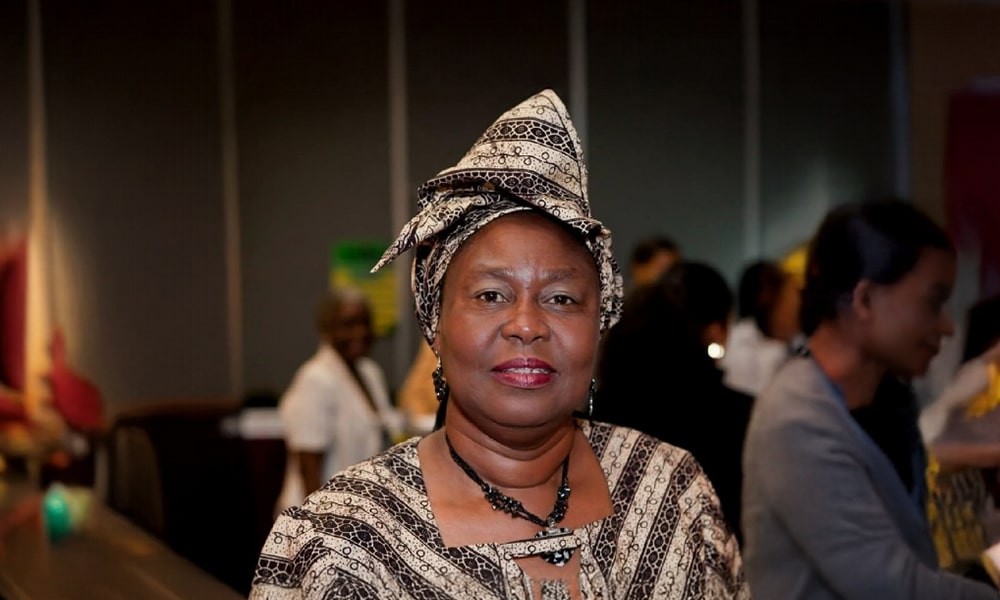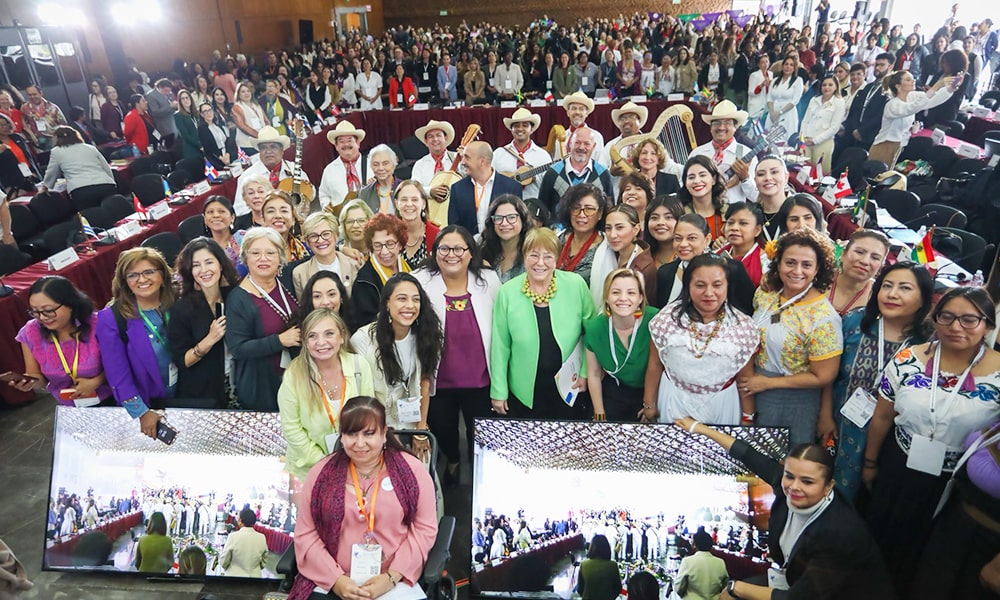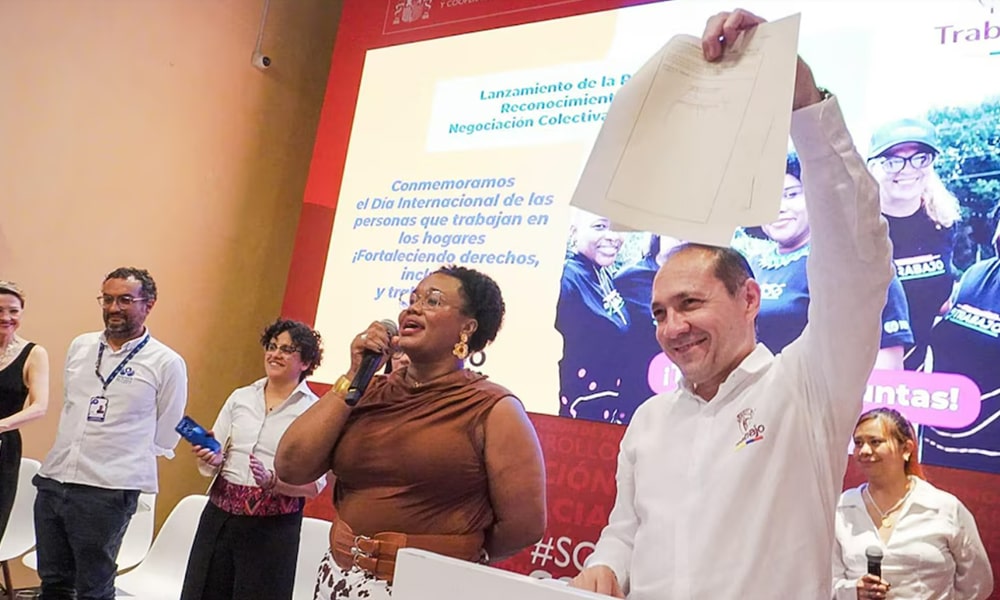Emotional tribute to our leader Ida Le Blanc and her mother, the great Clotil Walcott
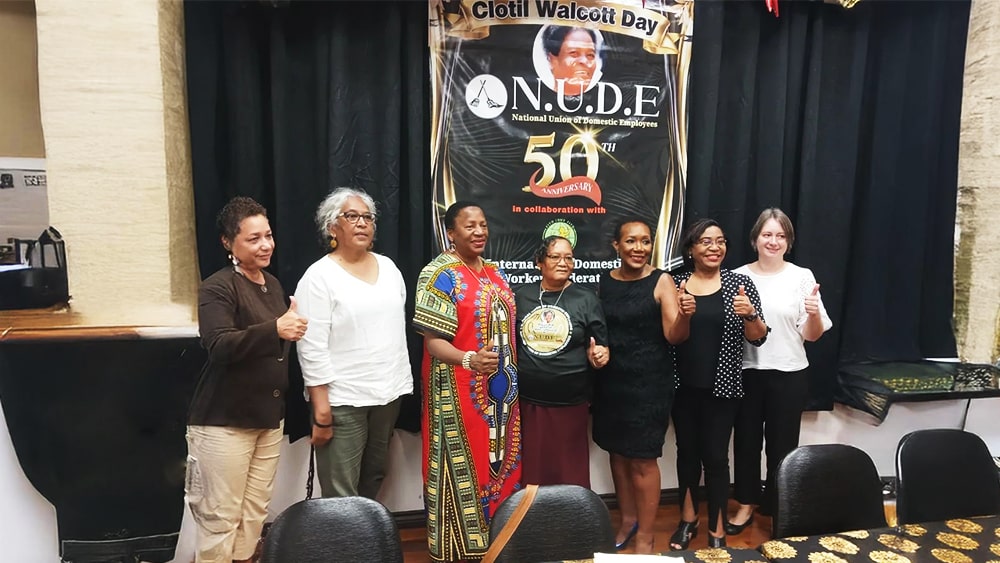
Our affiliate in Trinidad and Tobago, the National Union for Domestic Employees (NUDE), celebrated its 50th anniversary on September 7, coinciding with the birthday of Clotil Walcott, founder of the organization and mother of its current General Secretary, Ida Le Blanc, who also serves on the IDWF Executive Committee representing the Caribbean.
The commemorative event was attended by more than 75 people, including domestic workers, union leaders, human rights activists, journalists, public figures, the representative of the ILO Caribbean office Eva Guseva, the Minister of Planning and Development Pennelope Beckles, members of the Industrial Court Judge, and officials from the Ministry of Labor. During the ceremony, the Permanent Secretary of the Ministry of Labor, Natalie Willis, presented a gift of appreciation to Ida Le Blanc for her outstanding work leading NUDE over the past 25 years.
Besides, an emotional tribute was paid to Clotil Walcott, founder of NUDE and a historic union leader in Trinidad and Tobago, known for defending the rights of not only domestic workers but also all working women, Black workers, and the most vulnerable groups.
“Ms. Walcott was not just a leader; she was a force of nature. From the very beginning, she understood the unique struggles faced by domestic workers—many of whom are women working tirelessly behind closed doors, often without the recognition, respect, or protection that they deserve. She saw the invisibility of their labor, the vulnerability of their position and the exploitation that too many suffered in silence. And she decided that silence was no longer an option. Under her leadership, NUDE became a beacon of hope, providing legal aid, education and support to thousands of vulnerable workers. Her memory will forever be a guiding light in our and NUDE’s ongoing fight for the rights of domestic workers and all workers everywhere,” said Natalie Willis, the representative of the Ministry of Labour, in her speech.
Clotil Walcott’s Legacy
Clotil Walcott was born on September 7, 1925, in Trinidad and Tobago. In February 1964, she began working at the Cannings Poultry Processing Plant in Arima, where she remained employed for fifteen years. It was her difficult experiences with both the union and the employer during this time that sparked her interest in the oppression and exploitation of working women. This led her, in 1965, to join the Union of Commercial and Industrial Workers (UCIW), and a year later, to actively participate in politics.
Between 1969 and 1972, Clotil became a member of NJAC (The National Joint Action Committee) and took part in the “Black Power and Black Consciousness” movement, which aimed to promote Black identity, and cultural, social, and economic empowerment. During the state of emergency, she and her 16-year-old daughter, Ida, visited political detainees, supporting them by providing food or, when necessary, a hiding place. This no doubt inspired Ida’s own ongoing commitment to her mother’s work.
In 1974, domestic workers approached Clotil, seeking assistance with their lack of recognition and protection under Trinidad and Tobago’s labor laws. At the time, domestic workers were not recognized as “workers” under the Industrial Relations Act of 1972. In response, Clotil founded the National Union of Domestic Employees (NUDE).
Frustrated by the failure of the press to publish her views, Clotil began to publish her own material. She taught herself to type with two fingers and bought a typewriter. Using stencils printed by friends on Gestetner machines, she produced pamphlets which she then sold for fifty cents each in the town, at political meetings, and outside the parliament building. In 1980, Clotil’s publications were compiled in a booklet titled “Fight Back Says a Woman” by the Institute of Social Studies in The Hague.
This marked a turning point in Clotil’s career, as it launched her into the arena of international mobilization and diplomacy. She spoke at conferences around the world, and NUDE became the local representative of the International Wages for Housework Campaign. Clotil also joined the Trinidad and Tobago Peace Council, a branch of the World Peace Council. Over her lifetime, she received 11 national and international awards for her contributions, including the “Guardian Women of Trinidad and Tobago Award,” the Hummingbird Medal, and the “Woman of the Year” award.
Clotil Walcott was tireless in her fight for women’s rights, particularly for domestic workers. She broke new ground by pressing for the recognition of household workers as workers entitled to unionization and fair wages. Her efforts led to the successful lobbying for two landmark pieces of legislation: the Minimum Wages and Terms and Conditions of Service for Household Assistants Order (1982) and the Unremunerated Work Act (1995), which allowed for the inclusion of unpaid work in national statistics. Trinidad and Tobago became the first country in the world to pass such legislation, which served as a model during the negotiations on unpaid work at the United Nations Fourth World Congress on Women in Beijing in 1995.
Clotil was also a mother — a single mother of five children. Despite being from a poor, working-class background, she worked hard to ensure her children were well-fed, disciplined, and happy. She approached her work as a mother with the same love, dedication, and seriousness as her political work, nurturing her daughter’s passion for social justice. Ida Le Blanc is living proof of that legacy.
Ida was the first trade unionist to bring cases before the Industrial Court of Trinidad and Tobago for violations of the Minimum Wages Order. She has also served on several national boards representing the National Trade Union Centre (NATUC) and Civil Society. From 2012-2014, Ida was a member of the Civil Society Advisory Group to UN Women for the Caribbean. Additionally, she is a founding member of the International Domestic Workers Network (now IDWF) and played a pivotal role in the consultations leading to the passage of C189 at the ILO. Like her mother, Ida has received several awards for her contributions to domestic workers across the Caribbean.
Le Blanc’s tireless work embodies her mother’s sentiment: “I cannot allow my mother’s struggle to go down the drain. She was a fighter and great teacher. She taught me a lot about trade unionism and encouraged me to play an active role in the union. I have dedicated my life to service because it is a work that I love. I have done it for the love of people, especially the grassroots women. To do this job, you must have love for people. As we struggle for justice for workers, it is a never-ending thing because women are still suffering in the workplace.”
At 68 years old and with a long history of struggle behind her, Ida does not allow herself to give up: “Even though the government has passed the Unremunerated Work Act, which implies that work in the home is work, they still do not recognize domestic work as work. We will continue to fight for the ratification of ILO Convention 189 so that domestic workers can enjoy decent work like other workers. We need to call on women, call on women in the unions because they have a lot to say.”
Clotil and Ida: two remarkable women who have made tremendous contributions to our movement and to society as grassroots, working-class women. Our deepest recognition to them and to NUDE on its 50th anniversary. Salute!

